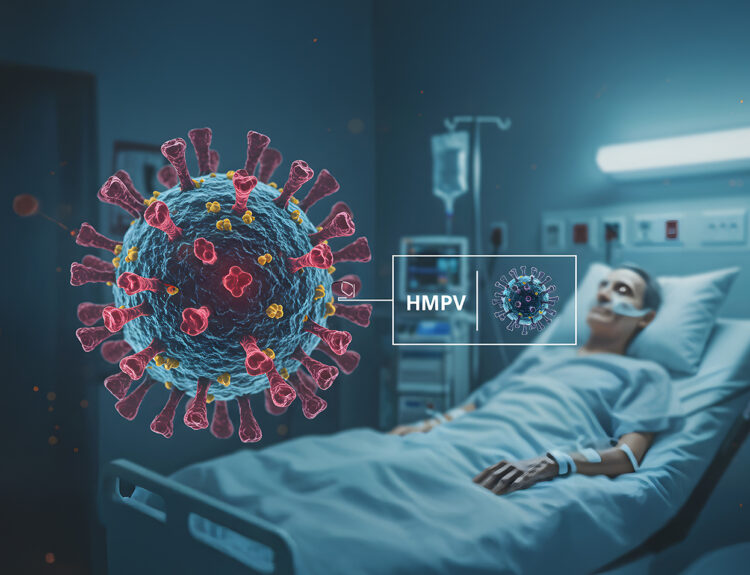We are living in an extraordinary epoch; the planet is currently experiencing an unprecedented increase in the human population. Continuous population growth is unsustainable for the planet and its resources. If women’s and girls’ rights are realized, population dynamics will change, and we will improve the health and prosperity of individuals, families, and the planet.
Without population stabilization, we cannot have a sustainable planet. Human population growth increases the demand for resources such as water, land, trees, and energy. Unfortunately, other endangered plants and animals, as well as an increasingly volatile and dangerous climate, are paying the price for all of this “growth.” Any truly meaningful conservation and sustainability efforts must consider the growing human population footprint.

Although reproduction is essential to a species’ survival, such a frightening population expansion would undoubtedly result in a shortage of many essentials. Contraception, commonly referred to as birth control or fertility control, is a method of preventing conception and managing population growth. Undoubtedly, we can state that it is time to give the rapid population rise a red flag. There are a number of simple, reliable birth control options available that can prevent unintended pregnancies and offer protection from STDs. Contraception is an artificial method mostly used to avoid getting pregnant after having sex.
In the developing world, 225 million women wish to avoid getting pregnant but do not use a modern form of contraception. More than a lack of access, this shows women’s subordinate roles, even in discussions about how many children to have with their partners and spouses. Women’s rights must be strengthened, scourges like child marriage must be reduced or eliminated, and sooner rather than later the world population will stabilize and begin to fall gradually. This will undoubtedly be praised by the natural world as well as by the people who will profit from better neighborhoods and a more stable climate worldwide.
Currently, the failure rate of over-the-counter contraceptives, such as condoms and spermicides, ranges from 13% to 21%. Despite having side effects and not always being readily available or affordable, hormonal-based contraceptives like IUDs and birth control pills have lower failure rates. This may be one of the reasons why the unintended pregnancy rate is currently 48% worldwide, according to recent global health research.

According to new research, in human ejaculate samples, inhibiting a prostate-specific antigen resulted in the semen remaining in its thick gel shape, trapping most of the sperm. A new type of non-hormonal, over-the-counter contraception may be developed by blocking the usual transformation of semen from a thick gel to a liquid. Semenogelins, the proteins that form gels, are hydrolyzed by the prostate-specific serine protease enzyme known as the prostate-specific antigen (PSA), which causes the semen to liquefy, a process known as semen liquefaction. Sperm motility is reduced and infertility is increased by highly viscous sperm and abnormal liquefaction. In mice, a nonspecific serine protease inhibitor (AEBSF) prevents semenogelin proteolytic degradations. It was unclear, however, whether a similar effect could be replicated in fresh human ejaculates. As a result, Washington State University researchers investigated the effect of AEBSF on the degradation of semenogelin (SEMG1) and its subsequent impact on sperm motility and liquefaction in fresh semen ejaculates collected from healthy men. They discovered that AEBSF had a dual contraceptive effect, successfully preventing the breakdown of SEMG1 that results in viscous sperm and decreasing sperm motility in samples of human sperm. AEBSF’s effect on sperm motility and viability, however, might be brought on by its inhibitory activity toward other serine proteases or just by its toxicity. Therefore, a neutralizing PSA antibody was utilized to test the hypothesis that suppression of PSA activity alone could impair SEMG1 breakdown and cause hyperviscous semen. They discovered that the PSA antibody successfully stopped SEMG1 from degrading while very slightly affecting sperm motility. These results imply that the target inhibition of PSA activity can stop the liquefaction process, which leads to hyperviscous semen, and can stop the proteolytic degradation of SEMG1.
Researchers at the University of North Carolina at Chapel Hill are developing a novel method of female contraception by precisely targeting monoclonal antibodies. In animal testing, ultra-potent antibodies created by Carolina researchers successfully caught and inhibited more than 99.9% of human sperm. According to the encouraging study findings reported in Science Translational Medicine, antibodies-based contraceptives may provide women with a non-hormonal method of preventing pregnancy. Monoclonal antibodies are used to treat and prevent everything from cancer to COVID-19 and are well known for their capacity to fend against invasive microbes. Antibodies may soon serve a new purpose, according to scientists, by immobilizing sperm before they reach an egg. A dissolvable film implanted in the vagina where it spreads antibodies prior to intercourse and an intravaginal ring that releases antibodies gradually are two options being explored by the researchers. The antibodies produced here could offer millions of women the contraception they require, help reduce the number of unintended pregnancies and the costs of caring for those children, and help manage population growth.
The two factors that have the biggest influence on lowering a nation’s birth rate are the widespread use of contraceptives and, to a lesser extent, ensuring that females complete at least 14 years of school. Liu and Raftery discovered that girls’ educational achievement, particularly during their early adolescence, had a significant impact on fertility (the “lower secondary” level of schooling). The completion of at least the lower secondary level, which is often regarded as the final step of basic education, had a bigger impact on fertility drop than the completion of only primary schools.

References:
- https://www.populationmedia.org/issue/populationgrowth/#:~:text=We%20cannot%20have%20a%20sustainable,increasingly%20volatile%20and%20dangerous%20climate.
- https://byjus.com/biology/population-control/
- https://academic.oup.com/biolreprod/article-abstract/106/5/879/6517228?redirectedFrom=fulltext
- https://www.sciencedaily.com/releases/2021/08/210826170228.htm
- https://www.sciencedaily.com/releases/2020/09/200908170532.htm

MDForLives is a global healthcare intelligence platform where real-world perspectives are transformed into validated insights. We bring together diverse healthcare experiences to discover, share, and shape the future of healthcare through data-backed understanding.






